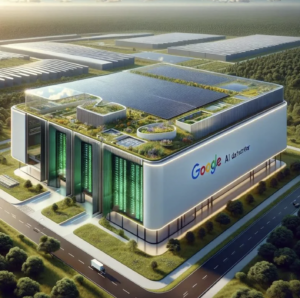In my “Speaking of Power” column last month, I explained that JEA, a community-owned utility in northeast Florida, is contemplating privatization. One of the reasons JEA is considering the change is that as a government-owned utility in Florida, it has a substantial number of constraints imposed upon it (see “Public vs. Private: What’s Best for Power Customers?” in the September 2019 issue).
Boulder, Colorado, sits at the other end of the spectrum. Boulder’s electricity is currently supplied by Xcel Energy, but if the city has its way, that could change in the future. Boulder has been contemplating municipalization. So, why would one public utility choose to go private while another city served by an investor-owned utility wants to go public? The devil is in the details.
Environmental Sustainability
“The concept of public power and municipalization has been something the city has considered many times throughout its history,” Jonathan Koehn, senior sustainability policy advisor for the City of Boulder, told POWER. The city’s franchise agreement with Xcel was set to expire in 2010, which began the conversation once again. The city began talks with Xcel in 2007 to explore how the two entities could design a new relationship that supported Boulder’s aggressive climate and energy goals.
A year earlier, Boulder had established a climate action plan and developed its own local carbon tax. The voter-imposed tax imposed a surcharge on electricity with the intention of funding emission mitigation strategies. Koehn said environmental sustainability is “part of the fabric of this community—it’s in its DNA.”
However, Xcel was not known at the time to be a leader in clean energy development. Its power portfolio was roughly 74% coal and a good portion of natural gas. Only a small percentage of its electricity came from renewables. Although Colorado had a renewable portfolio standard and Xcel was doing what was required by law, the city didn’t feel that was sufficient to address the carbon intensity of Boulder’s energy supply. The community wanted to go “further, faster,” Koehn said.
In 2010, in response to growing community expectations, the city forewent renewing its franchise agreement with Xcel and began analyzing the technical, legal, and financial feasibility of municipalization. Meanwhile, Boulder and Xcel continued to seek ways to meet Boulder’s energy goals.
“Our community continued to demand that Xcel find ways to rapidly change the energy portfolio serving Boulder customers,” Koehn explained. “Meaning, our ability to decarbonize couldn’t just be a function of consumption, because that really wasn’t changing the carbon intensity of our energy supply.”
Koehn acknowledged that since that time Xcel has moved significantly in the right direction. The company aims to serve its customers with 100% carbon-free electricity by 2050 and to reduce company-wide carbon emissions 80% from 2005 levels by 2030. Nonetheless, Boulder isn’t wavering.
Community Values and Local Control
Xcel’s progress on carbon-free energy has elevated the importance of the “local control piece of our efforts,” Koehn said. According to Steve Catanach, director of Climate Initiatives for the City of Boulder, local control offers significant advantages.
“The benefit a municipal utility brings is it really reflects the values of the community it serves,” said Catanach, who has a long career in public power including working for two of Colorado’s largest municipal utilities. “There are a lot of programs that can really reflect what a community wants and thinks. And with Boulder, much of what’s important is addressing and mitigating the impacts of climate change. So, local control is still very important to the community. Right now, the ability of our citizens to work on microgrids or to do innovative resiliency projects and programs is really limited by what Xcel will let you do.”
Initially, there was a lot of concern that a city the size of Boulder, which has a population of around 110,000, would not get the economies of scale that an investor-owned utility such as Xcel can achieve. However, Koehn said the city received indicative pricing from wholesale power suppliers less than a year ago and was delighted with the results.
“We were looking at prices meaningfully less than what we would expect to pay as retail customers, and the combination of wind, solar, storage, and limited natural gas could put Boulder on a path to achieving its 100% renewable electricity by 2030 goal. With the proposed pricing, it is clear that the transition to cleaner electricity was now the most-economic alternative,” Koehn said.
Making the Switch
The Colorado Constitution contains a provision that gives cities the authority to form municipal utilities, so Boulder has the upper hand, if its citizens want a public power system. Boulder is considered a “home-rule city” in Colorado, which offers additional benefits once a municipal utility is established.
“Certainly, there’s the tax advantage to a utility, but also, once we’re an operating utility and have a revenue stream, we’re considered an enterprise fund and we don’t have to go to the voters to borrow money, which makes life simpler,” Catanach explained. “Another advantage is we don’t fall under the current state regulatory structure—the Public Utilities Commission. For municipal utilities, their governing body is their city council, which ultimately speaks for the citizens of the community.” In any case, Catanach doesn’t expect Boulder to encounter the kind of limitations JEA currently faces in Florida.
A vote by the citizens of Boulder is required to move forward with municipalization. That could happen as early as November 2020. If approved, the city would purchase the necessary electric infrastructure from Xcel and construct a separate electric distribution system. The earliest operational date would likely be in 2024 or 2025.
“Municipalization has always been about achieving Boulder’s energy goals. We’re continuing to explore any pathway that will achieve our community’s objectives,” Koehn said. ■
—Aaron Larson is POWER’s executive editor










